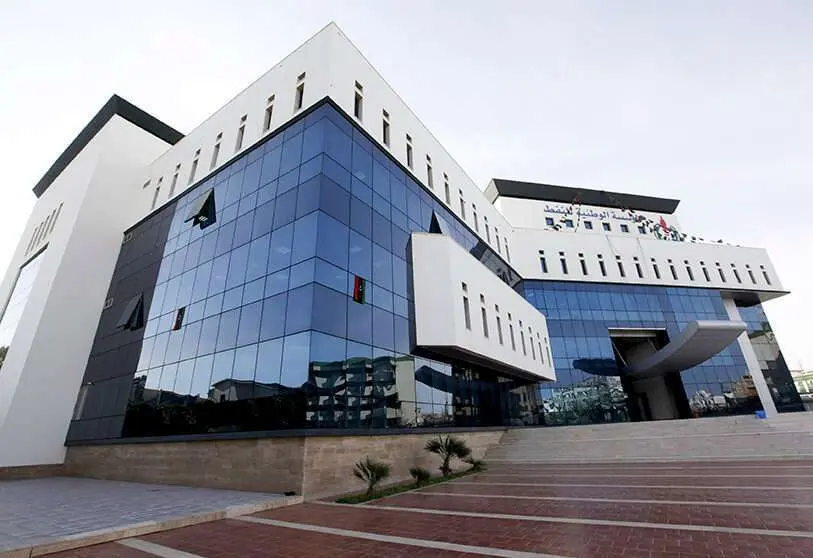Libya loses 92% of oil and gas revenues by 2020

Nearly ten years after the fall of Muammar Gaddafi, Libya remains divided between rival powers, with foreign interference: the UN-recognised Government of National Unity (GUN), based in Tripoli, and Marshal Khalifa Haftar's camp in the east.
Libya has the most abundant crude oil reserves in Africa, some 41.5 billion barrels, but with political instability in the country for nearly a decade. The rebound remains fragile and black gold is at the centre of the economic and political stakes.
Production by OPEC members was boosted again in December by Libyan oil which, after suffering local chaos, is recovering after the ceasefire signed in October.
After years of chaos, the country's oil sector continues to recover thanks to the permanent ceasefire signed in October between the two authorities that are vying for control of the country.
As a result, Libyan production had more than doubled by November. The current level contrasts sharply with those reached before the ceasefire: average production was only 121,000 barrels per day in the third quarter of 2020, ten times less than today.
Moreover, Libyan production increased by 136,000 bpd to reach 1.224 million bpd in December, after doubling in November. Before the ceasefire, production was only 121,000 bpd in the third quarter of 2020, ten times less than the current level.
But it remains below the level before the fall of Muammar Gaddafi's regime, when Libya produced between 1.5 and 1.6 million bpd, told AFP Francis Perrin, director of research at the Institute of Strategic and International Relations.
At that time, the Libyan economy was almost 90% dependent on industry. It is almost a miracle that the oil sector is still functioning despite the dilapidated infrastructure, damaged by war, neglect or sabotage.
The Tripoli-based National Oil Company (NOC), the only company allowed to market Libyan crude, announced in October that it had lifted the state of force majeure - which exempts it from liability for breach of contract - in the last blocked field.
A year ago, pro-Haftar forces blocked production and exports in key fields and terminals to demand a fairer share of revenues, managed by Tripoli.
But the failure of their offensive on the capital in the mid-1920s convinced Khalifa Haftar to give up this means of pressure. However, the eight-month stalemate resulted in losses of nearly $10 billion, according to the NOC.
On 3 January, the Libyan central bank began applying a new exchange rate of 4.48 Libyan dinars against the US dollar, after authorities in the west and east of the country reached an agreement on the matter last December, bringing the exchange rate closer to its value on the black market, where the official dollar was around 1.4 dinars before this change.
Libya, cut off from the market since January, is seeing its production and exports gradually recover, although the market is already in deficit and each new barrel increases the difference with demand by half.
Official statistics have shown that Libya's oil and gas revenues fell by 92% last year, as a blockade of oil facilities for several months led to the suspension of most export operations.
In the oil-rich country, the production and export of crude is the responsibility of the Tripoli-based National Oil Corporation (NOC), which disagrees with the central bank's revenue estimates.

The price of oil has suffered a historic collapse this year. Although the price remained close to $51 a barrel during December, the year was volatile. In April, US crude oil ended up negative and Brent crude fell below $20 a barrel. The COVID-19 pandemic and the price war between the oil giants Saudi Arabia and Russia served as the catalyst for a historic decline.
The demand for fossil fuels may continue until the end of the next few years, including the end of the pandemic. The countries are working to limit emissions in order to meet the climate change and start the transition to renewable energies.
According to the experts, the barrel will be difficult to transport to the island in 2021. COVID-19's request weighed the creciente optimismo sobre las vacunas.
This year's oil consumption will be 9.5 million barrels per day (mbd), or 9.5%, compared to 2019, which is 400,000 barrels per day more than a month ago, bringing the total forecast daily consumption to 90.2 mbd. These calculations are included in the crude oil market report issued monthly by the Organisation of Petroleum Exporting Countries (OPEC), which collects data starting in August.
Last month, the Organisation of Petroleum Exporting Countries (OPEC) already lowered its consumption forecast by 100,000 bpd, so in the last two months the Vienna-based organisation has worsened oil consumption forecasts by half a million barrels a day. For 2021, forecast world demand has also been reduced by around 400,000 barrels, and is expected to increase by 6.6 mbpd, with world consumption at 96.9 mbpd.
OPEC has warned that new, more contagious strains of COVID, rising infections and the slow pace of the vaccination process could hamper economic recovery and global demand for crude at least in the first quarter of 2021.
A partial recovery is forecast for 2021 from the previous year's 5.9 mbpd decline, equivalent to 6.5%, the same figure as the previous month, although OPEC estimates that economic clouds persist in early 2021.
Demand for fossil fuels could remain lower in the coming years, even after the pandemic. Countries are trying to limit emissions to curb climate change and begin the transition to renewable energy.
According to experts, it will be difficult for the gun to get upward traction in 2021. Demand continues to be held back by COVID-19 despite growing optimism about vaccines.








